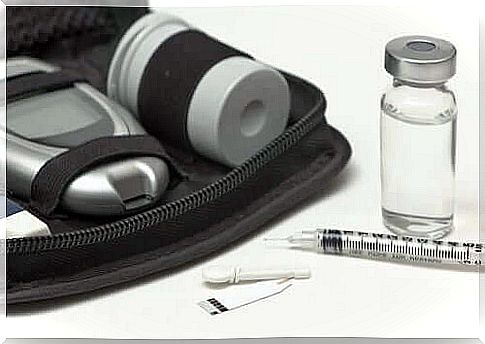Traveling With Diabetes: 6 Helpful Tips

When traveling with diabetes, you don’t have to limit yourself. You simply need to take certain precautions to prevent risky situations. But diabetics can enjoy travel just as much as a person who does not suffer from this disease.
Overall, you need to consider two main factors when it comes to traveling with diabetes. The first is to make sure that you have access to medicines and medical care, in case you need something like this. The second is to prevent, at all costs, injuries and lack of food during the trip.
At the same time, in order to be able to travel safely when you suffer from diabetes, your condition should be somewhat stable. It is not a good idea to go on a trip with doubts about how your body will react. Therefore, we advise you to consult a doctor and apply the tips below.
Have a medical check-up before the trip

When you have diabetes and want to travel, you have to take several steps. One of them is to take your medication with you and have a medical history at hand. Consult your doctor and ask him to write a report mentioning the type of diabetes you suffer from and the treatment you have been prescribed. This document will be of great help to you to transport medicines without any problem and, in case you need a consultation, so that the specialist knows how to proceed. In addition, your doctor will be able to give you advice depending on your destination.
Find out what healthcare options you have at your destination
It is very important to find out how the health system works at its destination. This includes identifying centers where you can get help and mechanisms for accessing medicines. Usually, domestic travel should not cause you any problems, but the situation can be complicated if you have to leave the country. In this second case, you need to buy travel insurance to cover any situation that may arise.
Remember what medications you need to have on hand
Medications you take daily, a glucometer and instruments such as syringes or insulin pens should be put in hand luggage. If you are going to travel by plane, do not store them in the luggage that will go in the hold, as it could be damaged during the flight.
It doesn’t hurt to have some food in your hand luggage. Products such as biscuits or fruit bars are ideal options. If you travel by boat, it is a good idea for your doctor to prescribe medications for seasickness. To travel safely by car, you will need to closely monitor your medication temperature and take an extra meal with you.
Be careful what you eat while traveling with diabetes

When you have to travel to a distant place, be very careful about the food you eat. Sometimes, product packaging does not provide clear enough information and you risk consuming something that will affect your health.
You need to know the ingredients of the dishes served, especially if it is something new. Do not hesitate to ask questions and refuse to eat if you do not have enough information.
Clothing and footwear
We advise you to wear comfortable clothes, especially during a trip by plane, train or bus.
A very important aspect is footwear. They should be comfortable, of superior quality and allow the feet to breathe. Never walk barefoot, especially if you have a loss of sensitivity in the legs. Check your shoes before wearing them and opt for flat or cropped toe shoes. Soft leather shoes without a toe are an ideal choice.
Learn about mosquitoes and the climate
When traveling with diabetes, you must be very careful to avoid mosquito bites and those of other similar insects. Many of these living things can transmit serious diseases, which can significantly complicate the condition of diabetics.
When visiting places at high altitudes, take steps to avoid altitude sickness. Also, keep in mind that low temperatures inhibit insulin absorption. Thus, patients traveling with diabetes should avoid the cold or consult a doctor if they need to visit a cold place.
We hope the tips in this article will help you. Regardless of the circumstances, the best thing you can do is ask for a doctor’s opinion.









